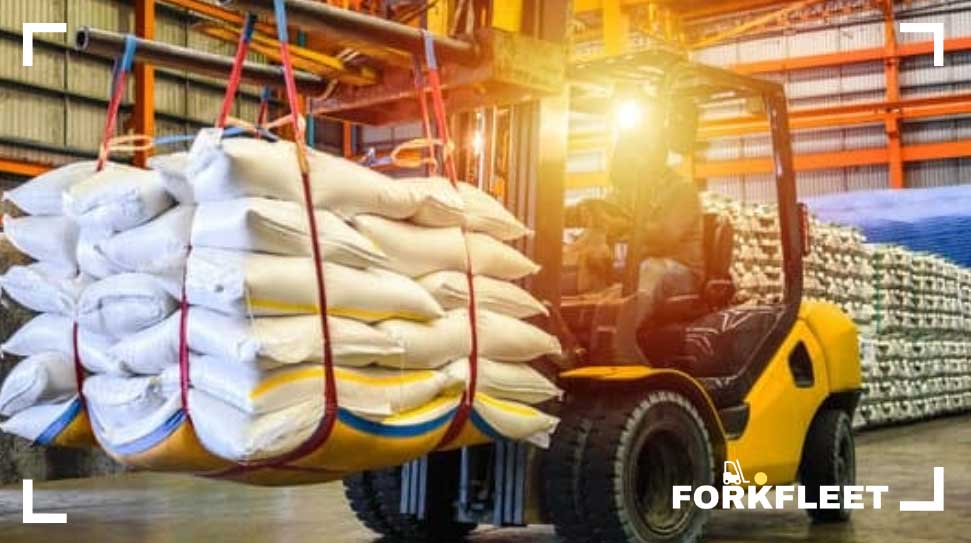Material Handling – Enhancing Efficiency through Forklifts and Task Allocation Software
Efficient material handling is important for enhancing productivity, reducing costs, and ensuring customer satisfaction.
One of the best tools that has revolutionized material handling is the forklift. Forklifts are powerful machines designed to lift and transport heavy loads with ease. They are widely used in warehouses, distribution centers, manufacturing plants, and other industrial settings. Forklifts not only save time and effort but also improve workplace safety by reducing the risk of manual lifting injuries.
Material Handling – The Significance
Efficient and effective material handling practices can greatly impact the success and efficiency of various operational processes.
Increased productivity
One of the most important advantages of effective material handling is increased productivity. The smooth flow of materials throughout the production process ensures that tasks are completed in a timely manner, reducing downtime and maximizing output. When materials are handled swiftly and effectively, it allows for seamless coordination between different teams and departments, resulting in improved overall productivity.
Cost reducion
Furthermore, efficient material handling practices can significantly reduce costs. By streamlining the movement of materials, organizations can minimize unnecessary handling, transportation, and storage expenses. This also helps in preventing damage to the materials or products, reducing the need for costly rework or replacements. Additionally, effective material handling ensures optimal utilization of available resources, reducing waste and improving cost-efficiency.
Risks
On the other hand, poor material handling practices can lead to several drawbacks and risks for an organization. Inefficient handling can result in delays, bottlenecks, and disruptions in the workflow, ultimately affecting productivity. It can also lead to increased risk of accidents and injuries for the employees involved in material handling activities. Heavy or improperly stored materials can pose safety hazards and cause workplace incidents, leading to potential financial losses and legal liabilities for the organization.
Loss of quality or lack of suitability
Inadequate material handling practices can result in damaged or defective products. Improper storage, mishandling, or incorrect transportation methods can cause product defects, making them unsuitable for sale or use. This can lead to customer dissatisfaction, loss of reputation, and financial losses for the organization.
Conclusion
The significance of material handling cannot be understated. Effective material handling practices contribute to improved overall productivity, cost reduction, and enhanced safety. Conversely, poor material handling can negatively impact productivity, increase risks, and lead to financial losses. It is therefore essential for organizations to prioritize and invest in efficient material handling systems and training to ensure smooth operations, maximize productivity, and mitigate potential risks.
Efficient Material Handling – Forklifts
When it comes to transporting, stacking, and organizing materials, forklifts play a critical role in ensuring efficiency and productivity. These machines are designed to handle heavy loads with ease, making them an essential tool in various industries such as manufacturing, warehousing, and construction.
Facilities
Forklifts excel at stacking materials. With their lifting capabilities and precise control, they can safely pile pallets or other types of containers vertically. This allows for maximum utilization of space, especially in crowded warehouses where floor area is limited. By stacking goods in an organized manner, forklifts optimize storage capacity and facilitate easy access to inventory. This, in turn, enhances overall operational efficiency and streamlines the flow of goods within the facility.
Types of forklifts
Different types of forklifts are available, each designed for specific applications. One common type is the counterbalance forklift, which features a weight at the back that counterbalances the load being carried. This makes it ideal for indoor applications, including stacking pallets and transporting goods around a warehouse. Narrow aisle forklifts, on the other hand, are specifically designed for tight spaces. They are more compact and maneuverable, making them suitable for narrow aisles and confined areas.
Specialized firklifts
There are also specialized forklifts such as reach trucks and order pickers. Reach trucks are equipped with an extending mast, allowing operators to reach heights and access high storage racks. These forklifts are commonly used in warehouses with high-density storage systems. Order pickers, on the other hand, are designed for order fulfillment operations. They have a platform on which an operator can stand, providing easy access to shelves and enabling efficient picking of individual items.
Optimizing Forklift Operations through Task Allocation
Task allocation software is a powerful tool that can greatly improve material handling operations by streamlining the process of dividing tasks among forklift operators.
Better efficienty, less cost
This software optimizes efficiency and productivity, ultimately leading to cost savings and improved overall performance.
“Uber” for forklifts
One of the key benefits of task allocation software is its ability to accurately assign tasks to forklift operators based on their availability. By automating this process, the software ensures that operators are assigned tasks in the most efficient manner possible, reducing time wasted on unnecessary delays.
Optimal use of resources
Task allocation software assists in balancing workloads among forklift operators, ensuring that no individual is overloaded with tasks while others remain idle. This not only helps prevent fatigue and burnout among operators but also promotes a fair distribution of work, fostering a positive working environment.
Case study
Real-world examples of companies successfully utilizing task allocation software abound.
Tenneco
One such example is Tenneco company that experienced significant improvements in productivity after implementing task allocation software. By effectively assigning tasks to forklift operators, they were able to reduce idle time and increase throughput, resulting in faster order fulfillment and improved customer satisfaction.
Dayco
Another example is Dayco company that successfully integrated task allocation software into their forklift operations. By utilizing the software’s ability to analyze real-time data, they were able to identify bottlenecks in the workflow and allocate tasks accordingly. This resulted in smoother operations, reduced waiting times, and increased overall operational efficiency.
Conclusion
Task allocation software plays a crucial role in optimizing forklift operations. By automating the task assignment process, it ensures tasks are efficiently distributed among operators, leading to improved productivity, reduced costs, and enhanced overall performance. Real-world examples demonstrate the positive impact this software can have on material handling operations, making it a valuable investment for companies looking to enhance their forklift operations.
Innovate Software for Cost Reduction and Workflow Optimization in Forklift Operations
Are you tired of dealing with inefficient processes and excessive costs in your forklift operations? Look no further! We are excited to introduce Forkfleet, a revolutionary software developed specifically for optimizing the performance of forklifts and operators.
By implementing our software, you can significantly reduce costs and enhance productivity within your organization.
Free consultation
We understand that every business is unique, which is why we offer personalized consultations to help tailor Forkfleet to your specific needs. Our experts will guide you through the implementation process, demonstrating how our software can revolutionize your forklift operations. Best of all, this consultation is completely free of charge!
Don’t miss out on the opportunity to transform your warehouse operations. Contact us today to schedule your free consultation and discover how Forkfleet can reduce costs and optimize the work of both forklifts and operators.
Why is it worth working with us?
Free audit
During a free consultation, we will listen to your needs. Then we will find and customize a solution that will be effective for you.
No need for integration
The system operates independently of other systems in the company. It does not use the company's network. It does not require involvement of the client's IT department.
Multitasking
The system performs multiple tasks. It assigns tasks to forklift operators, provides analytical data to leaders, organizes and increases the efficiency of intralogistics.
Budget solution
No large initial investment. Settlements in the form of a monthly subscription. Option to cancel at any time.
Proven system
Successfully implemented system for many clients from around the world. In every case of implementation, it resulted in increased efficiency.
Specific savings
Implementing our clients' system reduced forklift fleet costs by an average of 30%. Be the father of financial success in your company. Take advantage of the opportunity for savings!












